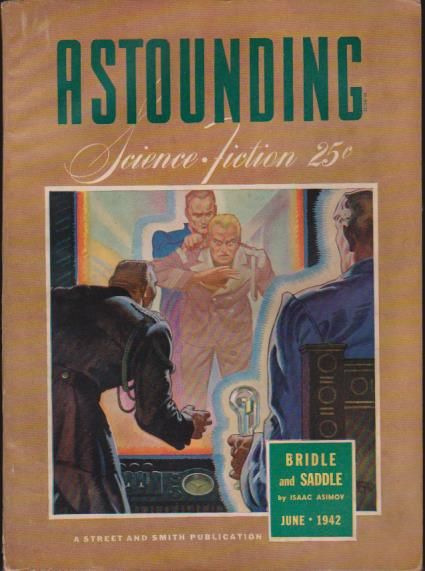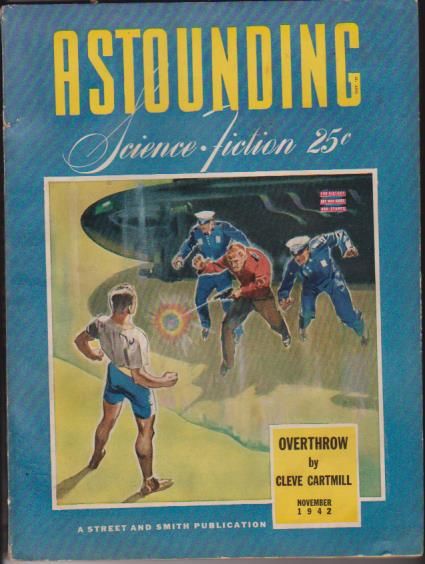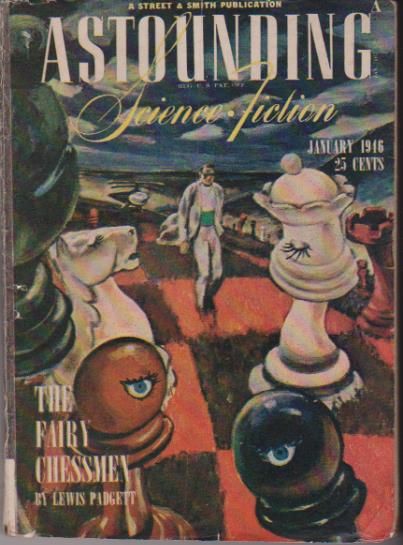Tom Hering
Rememberer
Adding books and magazines to your collection? Discovering minor authors you've never read before? Or finally reading a major author who - for one reason or another - you've avoided or neglected? Finally getting around to the lesser-known books and stories of your favorite authors? Or upon rereading it, now seeing something in an old favorite you've never seen before? Maybe just getting around to something you've always wanted to read?
Might it be something social? Participating in some gathering of Classic SF lovers? An old or new friend who shares your interest? Or just talking about your interest in forums like this one?
Here are some things that recently got my juices flowing again.
Acquiring books and magazines. (1.) Getting hold of a story that had stuck with me since my early teens. I had just the vaguest memory of it, so it took some detective work to figure out what it was. Remembering one or two details of the illustrations that accompanied it really helped to track it down. It was Secret Weapon by Joseph P. Martino, which appeared in the April, 1968 issue of Analog. Cover and interior illustrations by Kelly Freas. I look forward to reading it again after 48 years. (2.) Finally finding an affordable copy of the original edition of my all-time favorite, The Witches of Karres by James H. Schmitz. Chilton Book Company, First Edition, Third Printing, 1968. Not what a collector would consider a true first edition, but I'm pretty darned happy with it. Perfectly mint. (I've recently read The Demon Breed and A Tale of 2 Clocks for the first time.)
Reading a major author for the first time. Ray Bradbury. The Martian Chronicles. The Illustrated Man. Fahrenheit 451. I'm not sure why I never felt an attraction to his work in the past, but The Martian Chronicles is now one of my top 10 favorites. Maybe you have to discover an author like Bradbury at the right age - either when you're still very young, or when you're getting kind of old.
Getting a good deal on a series that will be my Winter reading project. All 12 Sector General novels by James White (4 omnibus volumes and Double Contact). I had only ever read The Genocidal Healer, maybe ten or twelve years ago. But that book left me with a strong taste for more. Now, at last, it's time to gorge myself.
Might it be something social? Participating in some gathering of Classic SF lovers? An old or new friend who shares your interest? Or just talking about your interest in forums like this one?
Here are some things that recently got my juices flowing again.
Acquiring books and magazines. (1.) Getting hold of a story that had stuck with me since my early teens. I had just the vaguest memory of it, so it took some detective work to figure out what it was. Remembering one or two details of the illustrations that accompanied it really helped to track it down. It was Secret Weapon by Joseph P. Martino, which appeared in the April, 1968 issue of Analog. Cover and interior illustrations by Kelly Freas. I look forward to reading it again after 48 years. (2.) Finally finding an affordable copy of the original edition of my all-time favorite, The Witches of Karres by James H. Schmitz. Chilton Book Company, First Edition, Third Printing, 1968. Not what a collector would consider a true first edition, but I'm pretty darned happy with it. Perfectly mint. (I've recently read The Demon Breed and A Tale of 2 Clocks for the first time.)
Reading a major author for the first time. Ray Bradbury. The Martian Chronicles. The Illustrated Man. Fahrenheit 451. I'm not sure why I never felt an attraction to his work in the past, but The Martian Chronicles is now one of my top 10 favorites. Maybe you have to discover an author like Bradbury at the right age - either when you're still very young, or when you're getting kind of old.
Getting a good deal on a series that will be my Winter reading project. All 12 Sector General novels by James White (4 omnibus volumes and Double Contact). I had only ever read The Genocidal Healer, maybe ten or twelve years ago. But that book left me with a strong taste for more. Now, at last, it's time to gorge myself.




